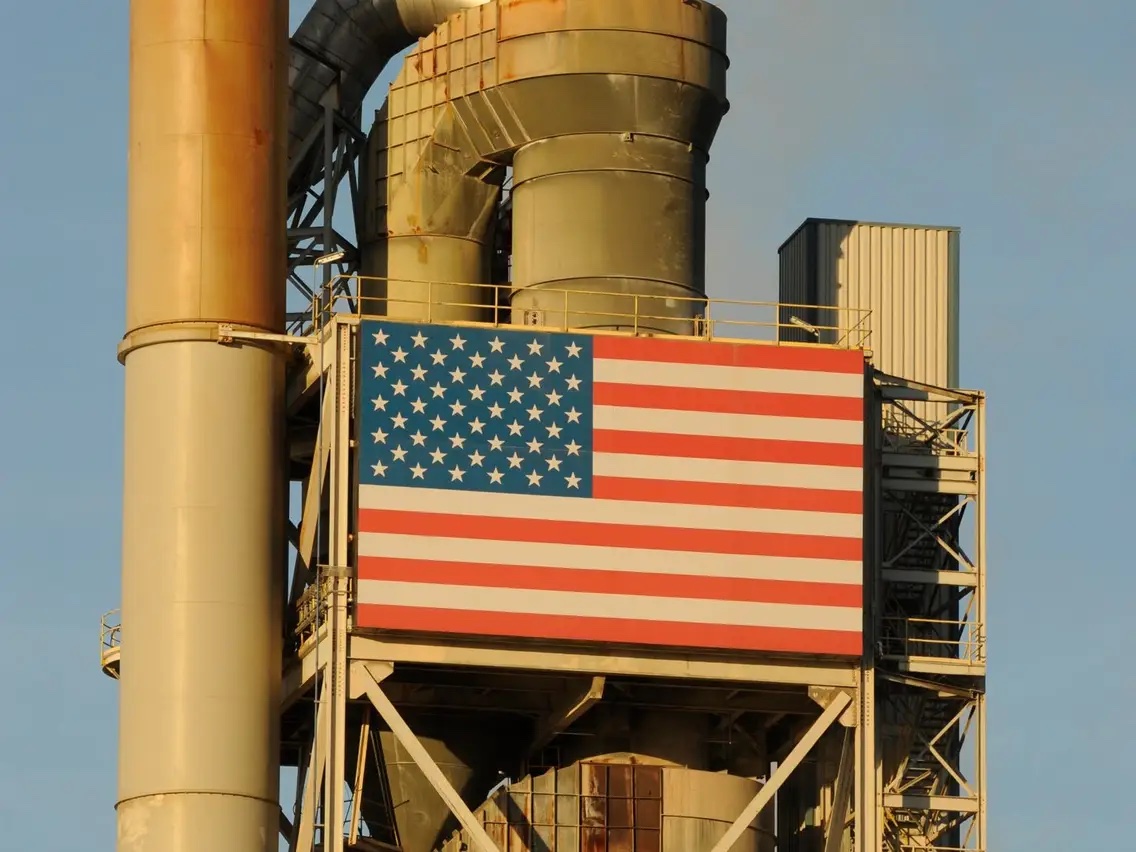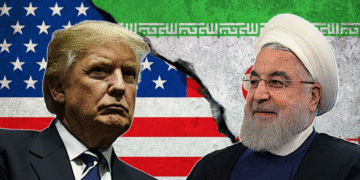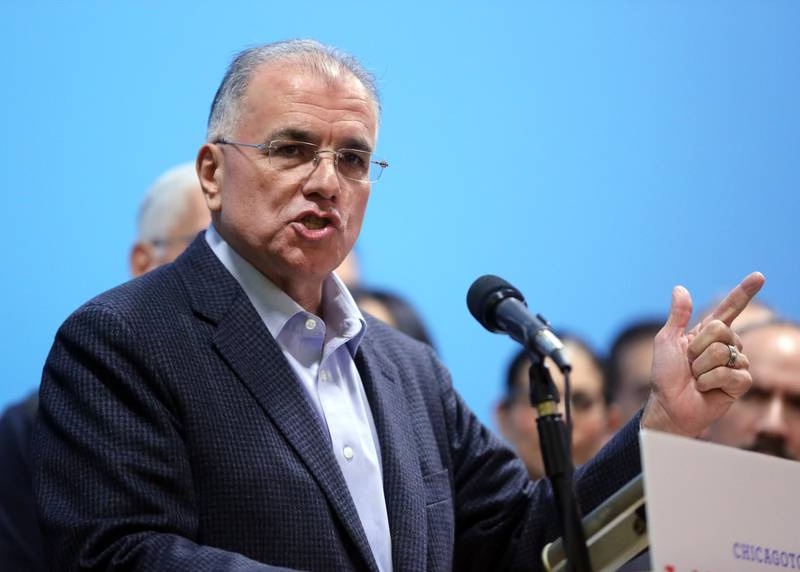By John F. Di Leo, Opinion Contributor
Who threatens our friend Taiwan, every single day? And not only Taiwan, but any other country in the South China Sea, who fishes or drills or does anything else that nations normally do in their own territorial waters?
You know who.
Who has over a million people in prison camps just because they happen to have been born into an ethnic minority, known as the Uyghurs, and uses these prisoners for the internationally-banned practice of slave labor, from backbreaking hours harvesting crops to miserable lives in textile sweatshops?
You know who.
Who has warped the concept of capitalism, designing an economic system in which all companies, both local and foreign-owned, must essentially operate as joint ventures with the military, sharing all data, all information, all technology, recipes, mill analyses, patents and trade secrets, so that the government always possesses all the information necessary to knock off that business if it chooses to…
You know who.
The current government of mainland China – that is, the People’s Republic of China, as opposed to the real Republic on the island once called Formosa, known as Free China – has not changed its policies in the over-70 years it has held power as an avowed communist nation. The politburo that killed millions in the Land Reforms, the politburo that killed millions in the Anti-Rightist Campaigns, the politburo that killed millions in the Cultural Revolution… this same body still rules today. It’s never been reformed; it’s never been reconstituted. Some faces and names have changed over the years, but not the policies… not the power… not the deaths.
Most recently, when an engineered bioweapon escaped a Wuhan lab, that politburo ordered buildings shuttered, doors and windows welded shut. People suffering from Covid 19, or from starvation, or from terror, were first locked in their homes, then gathered by government drones in hazmat suits and delivered to mobile crematoriums. We saw it on the news in 2020; we saw the video on YouTube, we read the stories in the mainstream press. But it was too horrible to think of, so we put it out of our minds. We watched whole cities emptied of population, not in distant secrecy like when Chairman Mao did it, but on camera, in real time, visible for all the world to see on the internet. And still we forced ourselves to forget.
Why?
We are a nation that joins in boycotts at the drop of a hat. Conservatives refuse to see leftist movies. Liberals refuse to shop at conservative stores. Conservatives avoid coffee shops that push wacky ideologies; liberals avoid shops that sell expensive pillows.
But we find it difficult to know what to do about a single country that has declared war on us, a country that abuses and kills its own people, harasses its neighbors, and engages in global blackmail and spying.
We know it happens; nobody even denies it. Mention that the Chinese have planted scientists in most of our research universities to steal our discoveries and you’re greeted with an eye roll; “sure they do, but what are you going to do about it?” Mention that the Chinese planted spies in a US Senator’s limo, and in a US Congressman’s bed, and in a vice president’s family, and the response is that “it’s always been that way.”
Well, actually, no, it hasn’t.
It hasn’t always been that way, and it doesn’t have to be that way anymore.
In America’s Founding Era, our distant Hanoverian king – George III, following in his father’s footsteps, controlled the business that America pursued. Certain industries were taxed to death or outright banned; we couldn’t operate iron forges or make fine clothing. We were expected to ship our raw materials to factors in England, and import finished goods back from England with the proceeds. The Hanoverian kings – along with their allies in Parliament – thought of these American colonies as their servants, the source of some raw materials, and a ready market for their finished goods.
We fought a revolution to declare independence from that economic domination.
How things have changed in 200 years.
Today, China thinks of us in much the same way. The USA sends raw materials to China to be processed, then we import back the finished goods. In this case, far from a foreign king banning types of manufacturing from American shores, our own local, state and federal governments have effectively banned them, by promulgating tax and regulatory policies, litigation techniques and labor practices, that have effectively destroyed industries here at home, forcing production abroad, into the waiting arms of Mainland China.
We have recently seen China send spy craft over our military installations and shipbuilding facilities. We have watched them hack into American banking records and gain other personal data through spy software like TikTok. We even watch them make a joke out of our anti-dumping laws, as they roll out massive shopping apps like Temu and Wish that seek to take over the American retail marketplace by selling at subsidized, impossible prices and destroying American competition.
And what are we doing about it?
There is, in fact, a limit to what our government can do. If we don’t want to declare war – and with the current bunch in the White House, we are obviously in no condition for war – then we need to act on our own, as individuals. But how?
One of the Left’s favorite slogans for the past forty years has been “Think Globally, Act Locally.” They use the slogan for ill, but the message is a good one for American patriots as well.
American patriots, too, should think globally – in terms of international relations, in terms of our national security – and act locally – in terms of our personal lives, both at the workplace and at home.
When shopping, we can buy the American-made item on the shelf, even if it costs a little more. Or we can buy the Guatemalan item, the Canadian item, the Italian item, the Philippine item, the South Korean item. Whenever there’s a choice, we can avoid the Chinese one.
When our business or property is for sale, we can sell to an American buyer, rather than contributing to China’s continued accumulation of American farmland, business properties, and other real estate. China has too many footholds in too many countries already. Deny them that additional farm, that additional building, that additional investment.
The greatest challenge is at our workplaces. If you’re a buyer, an engineer, a project manager for an American manufacturer or distributor, you probably inherited decades of bad choices. Your predecessors may have locked your employer into dependence on components from south China, or engineering services from central China, or finished goods from north China. It’s hard to change vendors; you can’t do it all at once. They have your tooling, your instructions, your trade secrets. But you know it has to be done.
Step by step, you can wean your employer away from this destructive addiction, this painful, soul-stealing dependence on our nation’s most serious enemy.
Find other vendors in other countries, other continents. With international transportation as damaged as it is today – with unpredictable transit times and supply chain availability hiccups everywhere – this is the perfect time to break the cycle and turn your sourcing inward.
Is the U.S. vendor a bit more expensive, piece by piece, than the Chinese vendor? Probably. But your transportation costs will plummet. Your Customs duties will disappear. Your lead times will drop by 80%. Your relationship cost – the business trips to meet with vendors, performing site audits and design/status meetings – will almost evaporate, once you stop having to fly engineers across the Pacific Ocean all the time. This will enable you to get to market quicker, simplify and speed up your supply chain, and eliminate most of the costs that arise when problems inevitably occur. One product at a time, one product line at a time, one vertical at a time.
The journey of a thousand miles begins with a single step. And similarly, the freedom from this addiction begins with the re-sourcing of a single product.
Let’s make America independent again.
Copyright 2023 John F. Di Leo
John F. Di Leo is a Chicagoland-based trade compliance trainer and transportation manager, writer, and actor. A one-time county chairman of the Milwaukee County Republican Party, and former president of the Ethnic American Council, he has been writing regularly for Illinois Review since 2009.
A collection of John’s Illinois Review articles about vote fraud, The Tales of Little Pavel, and his 2021 political satires about current events, Evening Soup with Basement Joe, Volumes One and Two, are available, in either paperback or eBook, only on Amazon.
Don’t miss an article! Use the tool in the margin to sign up for Illinois Review’s free email notification service, so that you always know when we publish new content!
By Janelle Powell, Opinion ContributorLike Donald Trump before him, the lifelong Illinoisan built his life outside politics – and that independence is exactly what makes him a threat...
Read moreDetails








